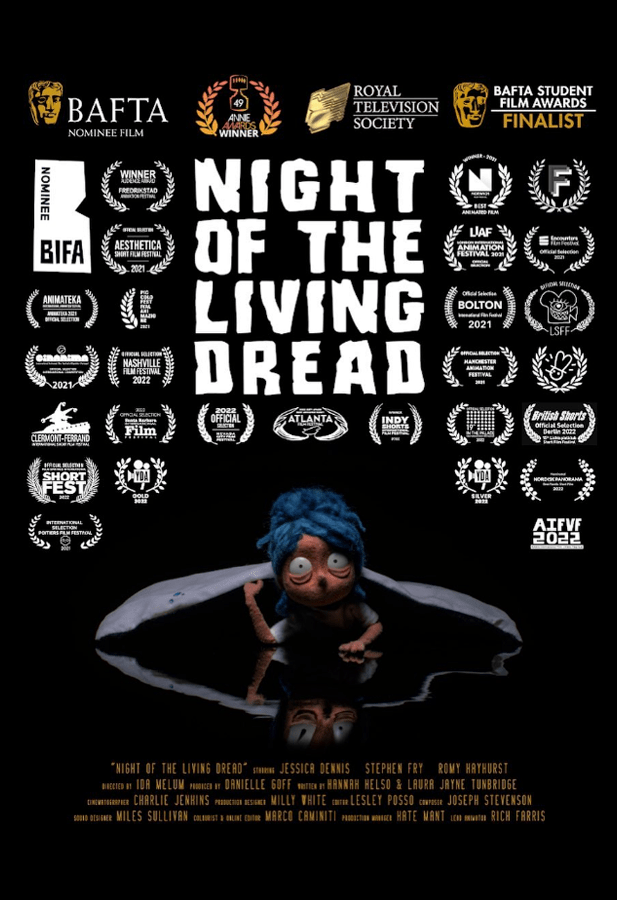You've Made A Film. Now What?
Congratulations on completing your film! The hard work and dedication you’ve put into it have paid off, and you now have a finished product that you can be proud of. But what comes next? In this digital age, there are many ways to distribute your film, and one of the most popular options is submitting it to film festivals.
Submitting your film to festivals can be an exciting and rewarding experience. It can help you get your work seen by a wider audience, receive recognition for your efforts, and even lead to potential distribution deals or future projects. However, it can also be a daunting process, especially if you’re new to the industry. In this article, we’ll take a closer look at the benefits of submitting your film to festivals, as well as some tips and tricks to help you navigate the submission process.
Why Submit Your Film to Festivals?
Submitting your film to festivals can be a great way to get exposure and recognition for your work. Festivals are attended by industry professionals, critics, and other filmmakers, providing an opportunity to network and connect with like-minded individuals. They can also offer a platform for your film to be seen by a wider audience, both in-person and online. Many festivals also offer cash prizes, trophies, or other forms of recognition for exceptional work, which can help boost your credibility as a filmmaker.
In addition to these benefits, festivals can also be a valuable tool for artistic growth. Seeing how audiences react to your work can help you learn more about what works and what doesn’t and can provide valuable feedback for future projects. Festivals can also expose you to new styles, techniques, and ideas that can help inspire your own creative endeavours.
Choosing the Right Festivals
When it comes to submitting your film to festivals, the first step is to research and choose the right events to target. There are thousands of film festivals held around the world each year, ranging from small local events to prestigious international showcases. Each festival has its own focus, audience, and requirements, so it’s important to do your homework and find the ones that best match your film and goals.
Some factors to consider when choosing festivals include:
- Genre: Some festivals are dedicated to specific genres, such as horror, comedy, or documentary. If your film fits into a particular genre, it may be worth targeting festivals that specialise in that area.
- Location: Festivals are held all around the world, so consider where you want your film to be seen and where you can realistically attend if invited. Some festivals may offer travel grants or other support for filmmakers travelling from out of town.
- Timing: Festivals typically have specific submission deadlines and screening dates, so make sure your film is ready and available during the relevant time period. It’s also important to consider the festival circuit as a whole and plan your submissions accordingly. For example, if you want to target Sundance or Cannes, you may need to plan your submissions and premiere strategically to maximise your chances of acceptance.
- Reputation: Some festivals are more prestigious or well-regarded than others, and getting into one of these events can be a major boost to your career. However, these festivals are also typically more competitive and selective, so be prepared to have a backup plan if you don’t get in.
- Entry Fees: Many festivals charge a submission fee, which can range from a few dollars to several hundred depending on the event. While entry fees can add up quickly, they can also be a way to filter out less serious or committed filmmakers and ensure that the festival is only screening high-quality work.

One of our directors, Ida Melum‘s film Night of The Living Dread, performed exceptionally well on the film festival circuit.
Overall, it’s important to be strategic and targeted when choosing festivals to submit to. While it may be tempting to shotgun your film to every event under the sun, this can be a waste of time and money if the festival isn’t a good fit for your
One of the challenges of submitting to festivals is figuring out where your film fits in terms of genre or category. While animation festivals are a great place to showcase work that falls under that category, there are many other festivals that may be a better fit depending on the content and style of your film.
For example, documentaries often incorporate animation elements, whether it’s through motion graphics, rotoscope animation, or other techniques. Many festivals have dedicated documentary categories, which may be a better fit for a film that blends live-action footage with animation. Similarly, experimental or avant-garde films may not fit neatly into any one category, but could find a home at festivals that focus on pushing boundaries and exploring new forms of storytelling.
It’s worth taking the time to research festivals beyond just the animation category and see if there are any that align with your film’s themes, style, or subject matter. This can help increase your chances of getting accepted and also expose your work to new audiences who may not typically seek out animation.
One of our animation directors Antonin Niclass collects the award for British Short Animation alongside Vladimir Krasilnikov & Jordi Morera.
Marketing Your Film at Festivals
Once you’ve been accepted to a festival, it’s important to make the most of the opportunity. In addition to screening your film, festivals offer a chance to connect with other filmmakers, industry professionals, and potential collaborators. It’s worth investing some time and effort into marketing your film and building your personal brand at festivals.
One way to do this is by creating a press kit for your project. This can include stills from the film, a synopsis, director bio, headshots, and any other materials that can help promote your work. While it’s unlikely that programmers will look at your press kit during the pre-selection process, it can be a valuable tool for marketing and outreach once you’re at the festival.
Another way to market your film is by attending networking events, workshops, and other activities offered by the festival. This can be a great way to connect with other filmmakers, share ideas, and learn more about the industry. Many festivals also offer opportunities to meet with distributors, sales agents, and other industry professionals, which can help open doors for future projects.
Finally, it’s important to be professional and respectful at festivals. While it can be tempting to party and let loose, remember that you’re representing yourself and your work. Be courteous to other attendees, follow festival rules and guidelines, and be open to feedback and criticism. Building a positive reputation in the industry can go a long way in helping you achieve future success.
As a filmmaker, you have the power to inspire and influence others, and your work may inspire someone else to create something amazing.
Dealing With Rejection
As with any industry, the world of animation and film festivals can be competitive and challenging. Dealing with rejection and setbacks is a natural part of the process, and it’s important not to let it discourage you from pursuing your dreams.
While it can be tempting to want to attend every festival possible, it’s important to be pragmatic about your resources and expenses. Not every festival will cover your travel and accommodation, and there may be other expenses to consider. It’s best to fine-tune your outgoings to best suit your circumstances and consider attending festivals, conferences, and markets from a professional standpoint. If you plan to claim these expenses as business expenses, make sure to consult with your accountant first.
When it comes to dealing with rejection, it’s important to remember that it’s not a reflection of the quality of your work. Film festivals are subjective, and what one person may love, another may not. It’s important to not take rejection personally and to keep pushing forward. Even the most successful filmmakers have faced rejection and setbacks in their careers.
The festival environment can be an inspiring and motivating place, with opportunities for discussion, networking, and creative inspiration. Watching other films and meeting other filmmakers can spark new ideas and fuel your passion for animation. As a filmmaker, you have the power to inspire and influence others, and your work may inspire someone else to create something amazing.
Submitting your film to festivals can be a valuable way to showcase your work, gain recognition, and connect with others in the industry. While it can be challenging and competitive, persistence and dedication are key. By being strategic and targeted in your submissions, marketing your work effectively, and being prepared for rejection and setbacks, you can increase your chances of success and take the first step towards a rewarding career in animation. Remember that animation breeds more animation, and your work has the power to inspire and motivate others to create something remarkable.

